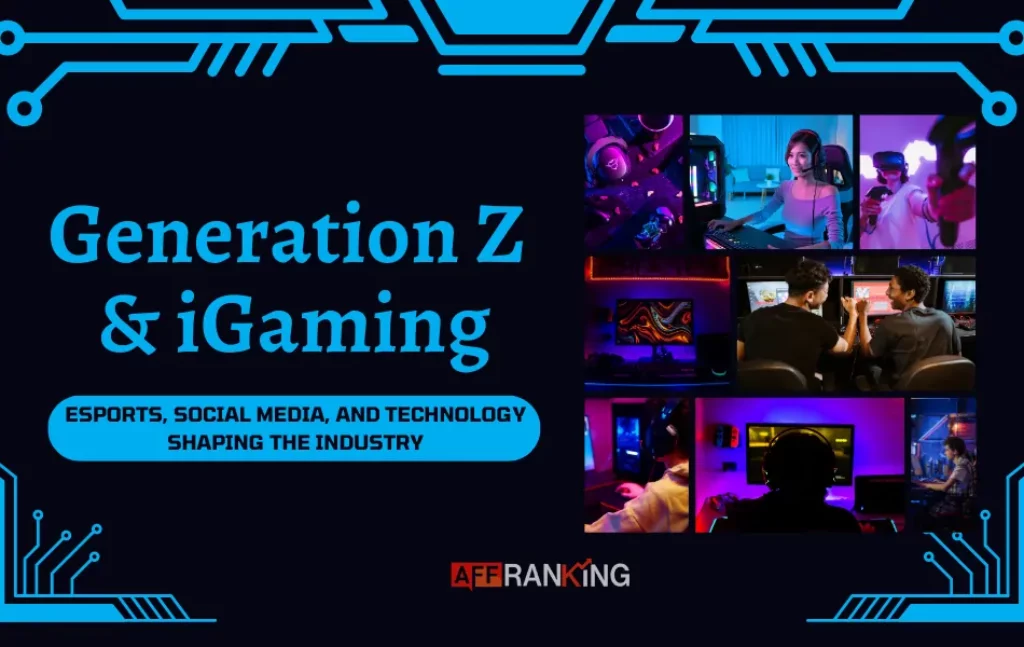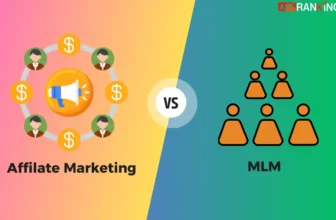
The iGaming industry is no stranger to evolution. From the early days of pixelated games to the immersive experiences of today, the landscape has seen a seismic shift. Now, a new wave is on the horizon: Generation Z players. Born between 1997 to early 2000, this generation is reshaping the gaming industry with unique preferences and behaviors. For affiliate marketers, understanding Gen Z is not just an option; it's a necessity.
Generation Z Players: A Broad Overview
Generation Z, characterized by their digital nativity and social connections, they are unlike any previous generation. They value experiences over material possessions and seek social, immersive, and interactive gaming experiences. Traditional games are losing ground to skill-based games or those with elements of strategy.
Gen Z is the first generation to grow up in a fully digital world. They are characterized by their deep connection to technology, social media, and online communities. For Gen Z, gaming is not just a pastime; it's a social experience.
Preferences of Generation Z
- Influence of Social Media: Platforms like TikTok and Instagram have become primary search engines for Gen Z, shaping their opinions and interests in gaming.
- Mobile Gaming: Around 96% of Gen Z own a smartphone, and they spend an average of 3 hours and 38 minutes online each day, with a significant portion dedicated to mobile gaming.
Whereas, when we talk about the millennials, they bridge the gap between the analog past and the digital present. They have witnessed the transformation of gaming from simple arcade games to complex online platforms.
What millennials prefer is not totally different from the Gen Z’s as they are too, somewhat inclined towards technology. It's just that they were not born with it but have grown while being introduced to the new ones. Millennials are attracted to Podcasts and Audio. They have shown a growing appreciation for podcasts and audio in 2021, with 41% listening to at least one podcast a week.
They have seen a decline in traditional media. Their engagement with traditional formats like broadcast TV declined for Millennials during the pandemic, and also the live TV viewership dropped by 23% across the 18-34 brackets.
Gaming Preferences of Generation Z
Generation Z's gaming preferences are reshaping the iGaming industry. Their interests are diverse, but a few key trends stand out. One of the most significant is the rise of eSports and sports betting among this demographic.
eSports Betting: A Rising Trend
eSports, or competitive video gaming, has exploded in popularity over the past decade. With the advent of streaming platforms like Twitch and YouTube Gaming, eSports has become a global phenomenon, attracting millions of viewers and generating billions in revenue. For Generation Z, who grew up with video games as a mainstream form of entertainment, the appeal of eSports is natural.
Generation Z's interest in eSports extends to betting on the outcomes of matches and tournaments. eSports betting offers a new way to engage with their favorite games and players, adding an extra layer of excitement and involvement. It's not just about watching the best players compete; it's about predicting who will win, who will score the most points, or which team will take home the championship.
According to a report, approximately 50% of Gen Z and millennials over the age of 21 want the option to bet on different aspects of the game in real-time on their mobile devices while attending live sporting events. This shows a clear demand for interactive, immersive betting experiences that go beyond traditional sports betting.
The Appeal of eSports Betting
There are several reasons why eSports betting appeals to Generation Z, like the familiarity with the games. Many Gen Z'ers play the same games that they bet on, giving them an intimate understanding of the mechanics, strategies, and players involved.
Then comes community involvement where eSports betting allows Gen Z to engage with the gaming community in a new way, discussing predictions, strategies, and results with fellow fans.
When we talk about the accessibility, and the rise of online betting platforms, placing a bet on an eSports match makes it as easy as a few taps on a smartphone. Also, they have a vast variety as eSports encompasses a wide range of games, from team-based shooters like Overwatch to individual competitions like StarCraft II. This variety ensures that there's something for every type of player and bettor.
Now coming to the main theme, ‘Live Betting’, many betting platforms offer live betting options, allowing bettors to place bets in real-time as the action unfolds. This adds an extra level of excitement and engagement to the experience.
As the iGaming industry continues to evolve, the preferences and behaviors of Generation Z will play a crucial role in shaping its future. Understanding and catering to their interest in eSports betting will be key for affiliate marketers looking to succeed in this rapidly changing landscape.
The Role of Social Media and Influencer Marketing
Social media and influencer marketing have become powerful forces in shaping the preferences and behaviors of Generation Z, especially in the iGaming industry. They have a new and multifaceted impact of social media and influencers on Gen Z's gaming habits.
The Impact of Social Media Platforms
Social media platforms like TikTok, Instagram, and Twitter have become more than just tools for communication; they are primary search engines for young people. Gen Z uses these platforms to discover new games, follow eSports events, and engage with gaming communities.
- Discovery and Exploration: Social media channels are where Gen Z discovers new games, updates, and trends. Game trailers, reviews, and live streams are shared and consumed voraciously.
- Community Engagement: Platforms like Reddit and Discord allow Gen Z gamers to engage with like-minded individuals, share strategies, and discuss game updates.
- Twitter and Instagram provide real-time updates on eSports events, game releases, and industry news, keeping Gen Z connected and informed.
Influencer Marketing: A New Age of Endorsement
Influencers, particularly gaming influencers, play a significant role in shaping the opinions and interests of Gen Z.
- Trust and Relatability: Gen Z often trusts influencers more than traditional celebrities or advertising. They see influencers as peers who share their interests and passions.
- Also, the platforms like Twitch and YouTube Gaming allow influencers to live-stream their gaming sessions. Gen Z can watch, learn, and interact with influencers in real-time, creating a sense of community and social inclusion.
- Influencer Collaborations: Collaborations between influencers and game developers or betting platforms can create buzz and drive engagement. Exclusive content, giveaways, and influencer-hosted tournaments are popular strategies.
- Two-Way Interaction: Unlike traditional advertising, influencer marketing allows for two-way interaction. Gen Z can ask questions, share opinions, and engage directly with influencers, creating a more personalized and immersive experience.
SEO, SEM, and PPC Marketing: A Major Shakeup
The traditional methods of SEO, SEM, and PPC marketing are in for a major shakeup as social media platforms become primary search engines for Gen Z. Optimizing content for social media search, leveraging influencer partnerships, and creating engaging, shareable content will be key strategies for affiliate marketers.
The Challenge of Creating Immersive Experiences
Creating immersive experiences is at the forefront of the iGaming industry's evolution, particularly as Generation Z seeks more engaging and interactive gaming experiences. So, let's explore the potential and challenges of various technologies and trends that are shaping the future of immersive gaming.
1. Virtual Reality (VR) and Augmented Reality (AR)
2. Metaverse Casinos
3. Mobile-Friendly Gaming Platforms
4. Live Dealer Games
Social Media and Online Gambling
The fusion of social media and online gambling has created a powerful combination that is particularly appealing to Gen Z players. This synergy has not only revolutionized the way people gamble but also how online casinos market themselves.
The Influence of Social Media on Online Gambling
Social media platforms like Facebook, Twitter, and Instagram have become essential tools for online casinos. They use these platforms to build strong relationships with customers, promote special offers, and share information about responsible gambling. The merging of gambling with social media has the potential for mutual growth, with social games reaching around 290 million active players on Facebook alone.
The Attraction for Gen Z Players
Gen Z players are drawn to the excitement of risk/reward in gambling, and the interactive elements of social media make this combination even more enticing. Bonuses, loyalty rewards, and community interaction are key factors that keep members active both in social media and gambling platforms. The social gaming phenomenon, especially among underage users, drives the popularity of online gambling.
Innovate or Fade Away: Preparing for the Next Generation
Casino brands need to rethink engagement strategies for new generations of players. Innovation is crucial for survival, and preparation for the next generation of players is necessary to meet their demands and ensure success.
FAQs
What defines Generation Z?
Generation Z are characterized by their digital nativity, social connectivity, preference for immersive experiences, and a strong inclination towards interactive gaming and eSports.
Why is understanding Generation Z important for the iGaming industry?
Understanding Generation Z is crucial for the iGaming industry as they represent the future market. Their unique preferences and behaviors are driving new trends and shaping the industry's evolution. Catering to their interests is essential for innovation, engagement, and long-term success.
What are the popular gaming trends among Generation Z?
Popular gaming trends among Generation Z include eSports betting, virtual reality and augmented reality gaming, mobile-friendly platforms, live-streamed gaming sessions, and engagement with gaming influencers on social media platforms.
How are social media and influencers impacting the gaming industry?
Social media and influencers are shaping the gaming industry by driving discovery, fostering community engagement, providing trusted endorsements, and creating interactive and personalized experiences. They play a vital role in connecting with and influencing Generation Z's gaming preferences.
What are the challenges in creating immersive gaming experiences?
Creating immersive gaming experiences presents challenges such as high development costs, technical complexities, accessibility limitations, user experience optimization, and legal and regulatory compliance. Balancing innovation with practical considerations is key to success.
How are social media and influencers affecting Gen Z's gaming habits?
Social media and influencers play a huge role in shaping Gen Z's gaming habits. Platforms like TikTok and Instagram are primary discovery channels, while influencers provide trusted recommendations, live-streamed content, and community engagement.
Conclusion
The next generation of players is coming, and the iGaming landscape is shifting with a huge force. Affiliate marketers must innovate, adapt, and prepare to meet the unique demands of Generation Z players as the future of the industry depends on it.
The future of immersive gaming experiences lies in innovation, creativity, and a deep understanding of player preferences. While the potential is vast, the challenges are real. Success in this rapidly evolving landscape will require a willingness to experiment, invest in new technologies, and adapt to the unique demands of Generation Z players.
Generation Z's connection to social media and influencers is profound and multifaceted. They seek social inclusion, real-time interaction, and authentic connections. For affiliate marketers in the iGaming industry, understanding and leveraging these social dynamics will be essential to engage and resonate with this new generation of players.







